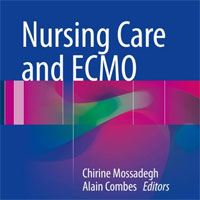Tag: sepsis

Unsupervised Analysis of Transcriptomics in Bacterial Sepsis Across Multiple Datasets Reveals Three Robust Clusters
The three sepsis subtypes may represent a unifying framework for understanding the molecular heterogeneity of the sepsis syndrome. Further study could potentially enable a precision medicine approach of matching novel immunomodulatory... read more

Sepsis and Septic Shock – What Matters from EM Cases Course
In this podcast Dr. Sara Gray, intensivist and emergency physician, co-author of The CAEP Sepsis Guidelines, answers questions such as: How does one best recognize occult septic shock? How does SIRS, qSOFA and NEWS compare... read more

Left ventricular systolic function evaluated by strain echocardiography and relationship with mortality in patients with severe sepsis or septic shock
Worse global longitudinal strain (GLS) (less negative) values are associated with higher mortality in patients with severe sepsis or septic shock, while such association is not valid for left ventricular ejection fraction... read more

Pooled Analysis of Higher vs Lower Blood Pressure Targets for Vasopressor Therapy Septic and Vasodilatory Shock
Targeting higher blood pressure targets may increase mortality in patients who have been treated with vasopressors for more than 6h. Lower blood pressure targets were not associated with patient‑important adverse events... read more

Extravascular Lung Water as a Target for Intensive Care
Extravascular lung water (EVLW) remains a useful guide for monitoring pulmonary edema (PO) and vascular permeability in sepsis, acute respiratory distress syndrome (ARDS), and heart failure. In addition, EVLW has a prognostic... read more

A Non-Antibiotic Approach for Treating or Preventing Sepsis
Researchers at the Royal College of Surgeons in Ireland (RCSI) have tested a compound called cilengitide in a preclinical trial. The drug goes by the brand name InnovoSep. Researchers discover the drug has the potential to... read more

Clinics Aim to Improve Post-ICU Recovery
Ten days after arriving in the emergency department with pneumonia, 58-year-old Connie Bovier woke up in the intensive care unit (ICU). She survived acute respiratory distress syndrome (ARDS), sepsis, and a host of other... read more

Sepsis Test Could Show Results In Minutes
A new rapid test for earlier diagnosis of sepsis is being developed by University of Strathclyde researchers. The device, which has been tested in a laboratory, may be capable of producing results in two-and-a-half minutes,... read more

Effect of a Resuscitation Strategy Targeting Peripheral Perfusion Status vs Serum Lactate Levels on 28-Day Mortality Among Patients With Septic Shock
Among patients with septic shock, a resuscitation strategy targeting normalization of capillary refill time, compared with a strategy targeting serum lactate levels, did not reduce all-cause 28-day mortality. Among 424 patients... read more

Should We Stop Trending Lactate in Septic Shock?
There may be a tendency to cement guideline recommendations into our collective minds as inalienable and sacrosanct – as if carved onto stone tablets and brought down to us from the heights of Mount Sinai. Thoughtful medicine,... read more

Antibiotic timing in Severe Sepsis
Severe sepsis is a time dependent condition and this study builds on previous literature which supports that early identification and treatment of sepsis with antibiotics decreases mortality. Retrospective analysis of a large... read more

Fever Control in Critically Ill Adults
One potential way to protect patients from the physiological demands that are a consequence of fever is to aim to prevent fever and to treat it assiduously when it occurs. Our findings do not support the hypothesis that more... read more

Optimizing Hemodynamic Support in Severe Sepsis and Septic Shock, An Issue of Critical Care Clinics
Guest Editor Dane Nichols, MD, has assembled a panel of experts focusing on Hemodynamic Support in Septic Shock. Topics include: Oxygen Delivery and Consumption: A Macro-Circulatory Perspective; Mean Arterial Pressure: Therapeutic... read more

Antifungal Treatment in the ICU
Invasive fungal infections (IFIs) are a major cause of morbidity and mortality in critically ill patients. Almost 80% of IFIs are due to Candida spp., which are the third most common isolated microorganisms in the intensive... read more








